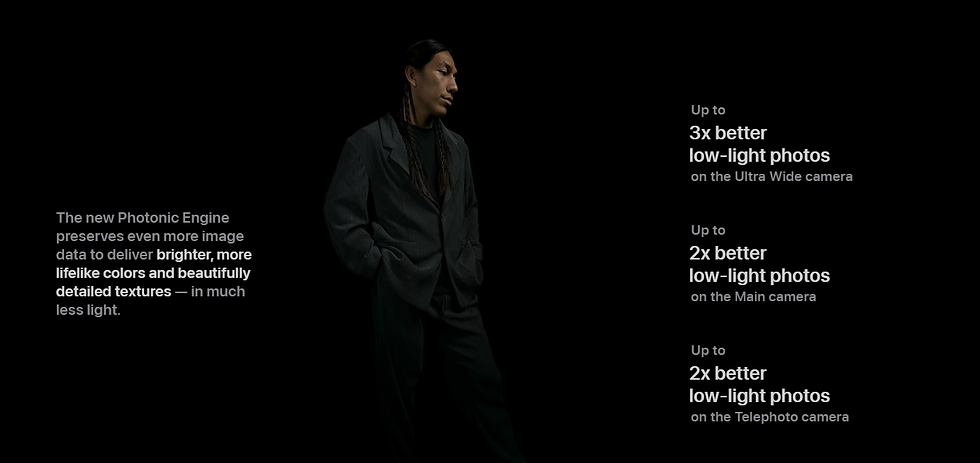Apple's Secret Language: The Words They Won't Say
- Archishman Bandyopadhyay
- Jun 16, 2023
- 3 min read
Have you ever noticed how Apple seems to carefully select the words they use during their presentations?

During their most recent keynote event, Apple went through 45 minutes on stage, talking about their new Vision Pro headset, and they didn't say the words virtual reality on stage once.
If you watch another smartphone product unveiling, a lot of them will do straight up spec comparisons to others :
"Our folding phone has a new 4,800 milliamp hour battery, which makes it the biggest battery in any foldable in this category."
Oh, "our new phone has a 200 megapixel camera, which makes it the highest resolution ever in a smartphone."
"Our new display refreshes at 165 hertz, making it 20% more responsive than the next best thing."
Apple doesn't really like to do this type of comparison.
Instead, they would rather name everything.
And not just the products. Of course, they name things like the iPhone, and the Mac, and the AirPods. And the software also has extremely functional names. You have iOS, iPadOS, macOS, watchOS, tvOS, visionOS.
But they also like to take technical achievements and technical features and brand them.
Put a name on them.
So instead of 120 Hertz high refresh rate LTPO display, we've got ProMotion.
Instead of an optical fingerprint reader, we have TouchID.
Instead of a large linear vibration motor, providing haptic feedback, it's a Taptic Engine.
Instead of the latest version of glass from their supplier, it's Ceramic Shield.

And the feature improvements are always in terms of incremental end user benefits. They'll mention "15% longer battery life" rather than the number of extra mAhs they managed to cram in.
This approach allows them to control the narrative and focus on the overall experience rather than the technical details.
Apple's strategic use of language can be attributed to two main factors: control and comparison. Firstly, Apple strives to maintain maximum control over their products, brand image, and public perception. By avoiding popular terms like "virtual reality" or "artificial intelligence" (AI), they can safeguard their reputation.
For example, AI has its fair share of controversies, so Apple uses phrases like "machine learning" to describe technology without using the term AI. Apple also seeks to avoid direct comparisons with competitors. Instead of focusing on specs, they emphasize the functionality and experience of their products.
Referring back to the keynote video introducing the Vision Pro headset, Apple never mentioned the term "virtual reality" on stage, even though the headset falls squarely into that category. Instead, they promoted an augmented reality experience and used the term "Environments" to describe VR-like features. By reframing the product, Apple shapes perception and aligns it with their ambitions. They've managed to brand virtual reality with a different name so they can control it and manage what it's compared to over time.
While Apple's strategy gives them complete control, it can also seem secretive and lacking transparency. But Apple has proven that brand differentiation - focusing on impression over specs - can be extremely effective for cultivating loyalty. Some consumers value transparency and comparisons, however.
Apple's secret language reveals their singular brand vision. But by avoiding industry terms and comparisons, they risk creating a "walled garden" that limits innovation. Apple's approach has succeeded commercially, but a balance of transparency and differentiation may optimize both brand identity and technological advancement.
Footnote: Checkout this extensive list of unique keywords that Apple has trademarked for its products & services







Comments